We have by far the most highly developed manufacturing equipment, experienced and qualified engineers and workers, regarded high quality handle systems along with a friendly qualified revenue team pre/after-sales support for Supply OEM/ODM Camilol / Alpha-Bisabolol CAS 515-69-5 Cosmetic Raw Materials, If you are fascinated in any solutions, you should experience absolutely free to make contact with us for additional details or you should send out us email instantly, we will reply you within just 24 hours and also the best quotation might be provided.
We have by far the most highly developed manufacturing equipment, experienced and qualified engineers and workers, regarded high quality handle systems along with a friendly qualified revenue team pre/after-sales support for Alpha-Bisabolol CAS 515-69-5 and Camilol, Our team knows well the market demands in different countries, and is capable of supplying suitable quality goods at the best prices to different markets. Our company has already set up a expert, creative and responsible team to develop clients with the multi-win principle.
Alpha Bisabolol, scientifically classified as a monocyclic sesquiterpene alcohol, stands out in the cosmetic industry for its exceptional balance of gentleness and performance. Naturally abundant in German chamomile (Matricaria chamomilla) essential oil—where it can constitute over 50% of the oil’s composition—it is also produced synthetically to ensure consistent quality and supply. This clear to pale yellow, slightly viscous liquid boasts excellent skin compatibility, high permeability, and stability across a range of pH levels and formulations, making it a favorite among formulators.Whether sourced from nature or lab-synthesized, bisabolol delivers identical soothing benefits, making it a versatile addition to everything from daily moisturizers to targeted treatments. Its mild, subtle aroma and low irritation potential align with consumer demands for “clean” and “sensitive-skin-safe” ingredients, while its proven track record in reducing redness and supporting recovery solidifies its role as a trusted active in premium skincare lines.
Key Function of Alpha Bisabolol
Calms skin irritation and reduces visible redness
Mitigates inflammation caused by environmental stressors or product use
Strengthens the skin’s natural barrier function
Enhances the efficacy of other active ingredients through improved penetration
Exhibits mild antimicrobial properties to support skin microbiome balance
Mechanism of Action of Alpha Bisabolol
Bisabolol exerts its effects through multiple biological pathways:
Anti-Inflammatory Activity: It inhibits the release of pro-inflammatory mediators such as leukotrienes and interleukin-1, interrupting the cascade that leads to redness, swelling, and discomfort.
Barrier Support: By stimulating keratinocyte proliferation and migration, it accelerates the repair of damaged skin barriers, reducing transepidermal water loss (TEWL) and enhancing moisture retention.
Penetration Enhancement: Its lipophilic structure allows it to permeate the stratum corneum efficiently, facilitating the delivery of co-formulated actives (e.g., vitamins, antioxidants) deeper into the skin.
Antimicrobial Effects: It disrupts the growth of harmful bacteria (e.g., Propionibacterium acnes) and fungi, helping to prevent breakouts and maintain a healthy skin microbiome.
Benefits and Advantages of Alpha Bisabolol
Suitable for All Skin Types: Particularly beneficial for sensitive, reactive, or post-procedure skin, with a proven safety profile even for infants and acne-prone complexions.
Formulation Flexibility: Compatible with creams, serums, sunscreens, and wipes; stable in both water-based and oil-based products.
Synergistic with Other Actives: Enhances the performance of ingredients like vitamin C, retinol, and niacinamide by reducing potential irritation and boosting absorption.
Key Technical Parameters
| Appearance | Colorless to light yellow liquid |
| Identification | Positive |
| Odor | Characteristic |
| Purity | ≥98.0% |
| Specific optical rotation | -60.0°~-50.0° |
| Density(20,g/cm3) | 0.920-0.940 |
| Refractive index(20) | 1.4810-1.4990 |
| Ash | ≤5.0% |
| Loss on drying | ≤5.0% |
| Residue Ignition | ≤2.0% |
| Heavy Metals | ≤10.0ppm |
| Pb | ≤2.0ppm |
| As | ≤2.0ppm |
| Total of bacteria | ≤1000cfu/g |
| Yeast and Mold | ≤100cfu/g |
| Salmgosella | Negative |
| Coli | Negative |
Application
Bisabolol integrates seamlessly into a wide range of cosmetic products, including:
Sensitive Skin Care: Calming toners, moisturizers, and overnight masks to alleviate redness and discomfort.
Acne Treatments: Spot treatments and cleansers to reduce inflammation without drying the skin.
Sun Care & After-Sun Products: Added to sunscreens to mitigate UV-induced stress; key in after-sun lotions to soothe burns or peeling.
Baby & Pediatric Formulations: Gentle lotions and diaper creams to protect delicate skin from irritation.
Post-Treatment Recovery: Serums and balms for use after chemical peels, laser therapy, or shaving to support healing.
Anti-Aging Products: Combined with antioxidants to address inflammation-related signs of aging, such as dullness and uneven texture.
A versatile, skin-friendly ingredient derived from chamomile or synthesized for consistency, bisabolol is a cornerstone of soothing, anti-irritant cosmetic formulations. Renowned for its ability to calm inflammation, support barrier health, and enhance product efficacy, it’s the ideal choice for sensitive, stressed, or acne-prone skin.?
Detailed Description?
Bisabolol, scientifically classified as a monocyclic sesquiterpene alcohol, stands out in the cosmetic industry for its exceptional balance of gentleness and performance. Naturally abundant in German chamomile (Matricaria chamomilla) essential oil—where it can constitute over 50% of the oil’s composition—it is also produced synthetically to ensure consistent quality and supply. This clear to pale yellow, slightly viscous liquid boasts excellent skin compatibility, high permeability, and stability across a range of pH levels and formulations, making it a favorite among formulators.?
Whether sourced from nature or lab-synthesized, bisabolol delivers identical soothing benefits, making it a versatile addition to everything from daily moisturizers to targeted treatments. Its mild, subtle aroma and low irritation potential align with consumer demands for “clean” and “sensitive-skin-safe” ingredients, while its proven track record in reducing redness and supporting recovery solidifies its role as a trusted active in premium skincare lines.?
Key Function?
Calms skin irritation and reduces visible redness?
Mitigates inflammation caused by environmental stressors or product use?
Strengthens the skin’s natural barrier function?
Enhances the efficacy of other active ingredients through improved penetration?
Exhibits mild antimicrobial properties to support skin microbiome balance?
Mechanism of Action?
Bisabolol exerts its effects through multiple biological pathways:?
Anti-Inflammatory Activity: It inhibits the release of pro-inflammatory mediators such as leukotrienes and interleukin-1, interrupting the cascade that leads to redness, swelling, and discomfort.?
Barrier Support: By stimulating keratinocyte proliferation and migration, it accelerates the repair of damaged skin barriers, reducing transepidermal water loss (TEWL) and enhancing moisture retention.?
Penetration Enhancement: Its lipophilic structure allows it to permeate the stratum corneum efficiently, facilitating the delivery of co-formulated actives (e.g., vitamins, antioxidants) deeper into the skin.?
Antimicrobial Effects: It disrupts the growth of harmful bacteria (e.g., Propionibacterium acnes) and fungi, helping to prevent breakouts and maintain a healthy skin microbiome.?
Benefits and Advantages?
Suitable for All Skin Types: Particularly beneficial for sensitive, reactive, or post-procedure skin, with a proven safety profile even for infants and acne-prone complexions.?
Formulation Flexibility: Compatible with creams, serums, sunscreens, and wipes; stable in both water-based and oil-based products.?
Synergistic with Other Actives: Enhances the performance of ingredients like vitamin C, retinol, and niacinamide by reducing potential irritation and boosting absorption.?
Cost-Effective Efficacy: Offers powerful soothing benefits at low usage levels (typically 0.1–1%), making it an economical choice for mass-market and luxury products alike.?
Consumer-Centric Appeal: Aligns with trends toward “natural” and “gentle” skincare, with clinical data supporting visible improvements in skin calmness and texture.?
Application?
Bisabolol integrates seamlessly into a wide range of cosmetic products, including:?
Sensitive Skin Care: Calming toners, moisturizers, and overnight masks to alleviate redness and discomfort.?
Acne Treatments: Spot treatments and cleansers to reduce inflammation without drying the skin.?
Sun Care & After-Sun Products: Added to sunscreens to mitigate UV-induced stress; key in after-sun lotions to soothe burns or peeling.?
Baby & Pediatric Formulations: Gentle lotions and diaper creams to protect delicate skin from irritation.?
Post-Treatment Recovery: Serums and balms for use after chemical peels, laser therapy, or shaving to support healing.?
Anti-Aging Products: Combined with antioxidants to address inflammation-related signs of aging, such as dullness and uneven texture.?
*Factory Direct Supply
*Technical Support
*Samples Support
*Trial Order Support
*Small Order Support
*Continuous Innovation
*Specialize in Active Ingredients
*All Ingredients are Traceable
-
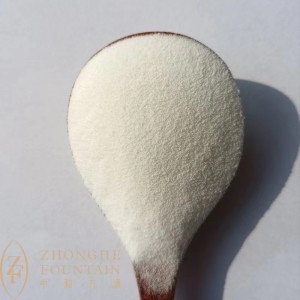
Good Wholesale Vendors 98% of Apple Extract Phloretin Supplied by Chinese Factories
Phloretin
-
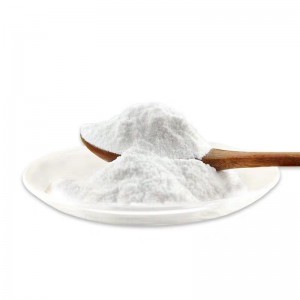
Price Sheet for Factory Supply Cosmetic Raw Material Ferulic Acid CAS 1135-24-6 with Best Price
Ferulic Acid
-
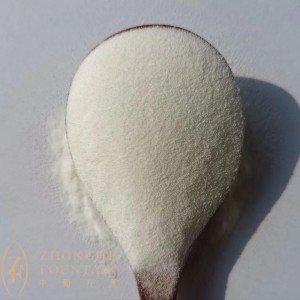
Factory Best Price 99% Purity Chlorphenesin Powder CAS 104-29-0
Chlorphenesin
-

Factory made hot-sale Cosmetic Grade Pure Skincare Ingredients Allantoin Powder
Sclerotium Gum
-
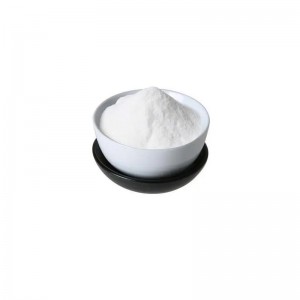
Wholesale Price China Wholesale Bulk Price Cosmetic Skincare Material Ingredient Ectoin Powder Hot Sale
Ectoine
-
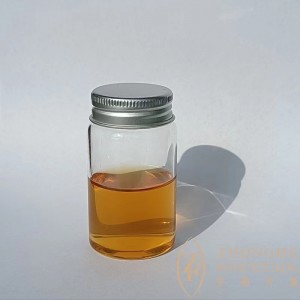
Good Quality Cosmetic Grade CAS No. 10309-37-2 Bakuchiol with Competitive Price
Bakuchiol













